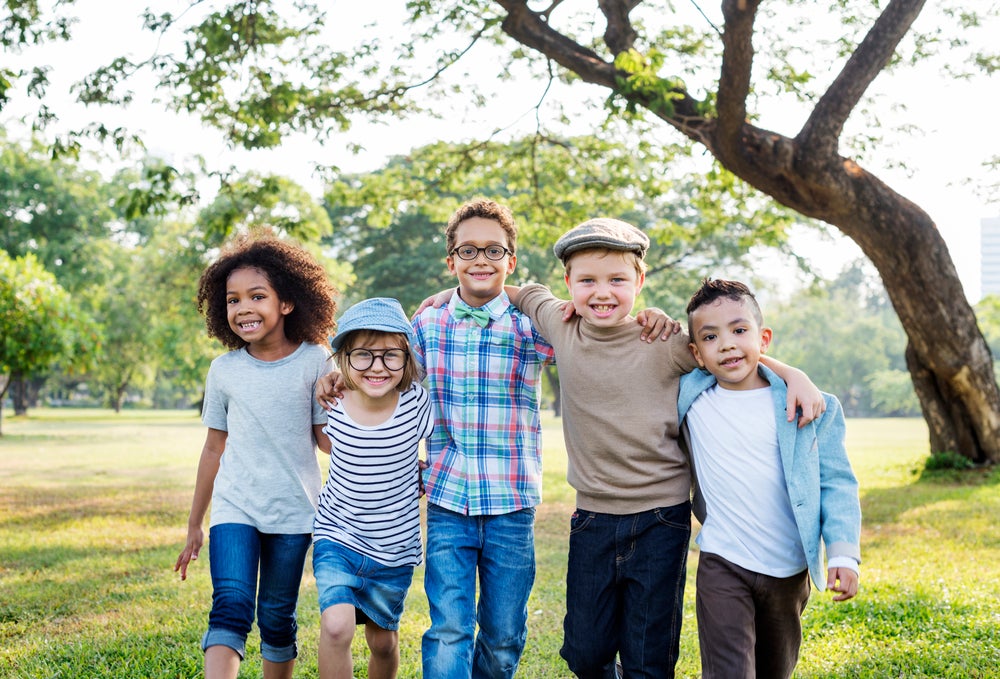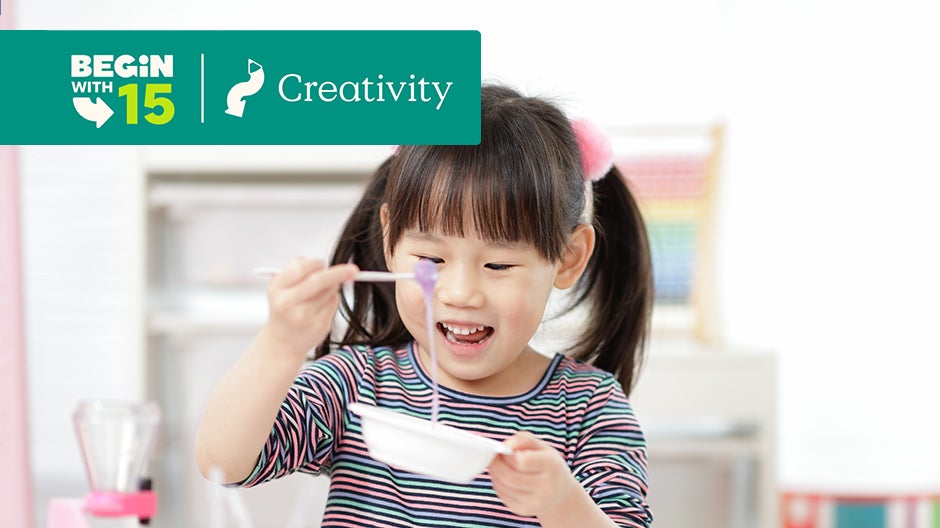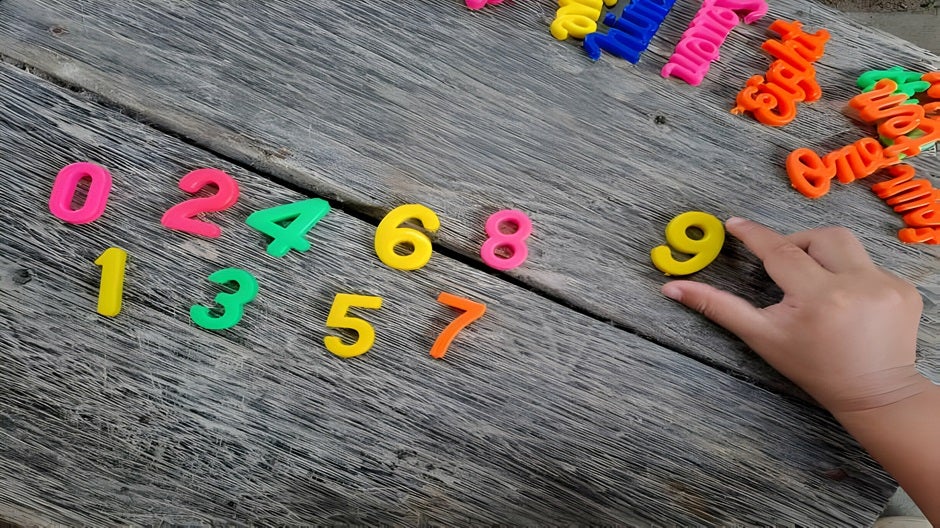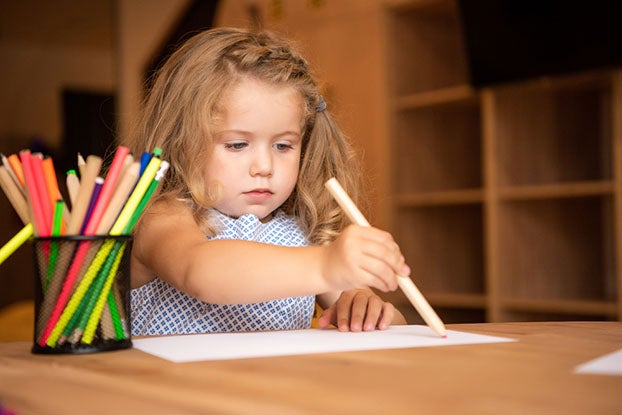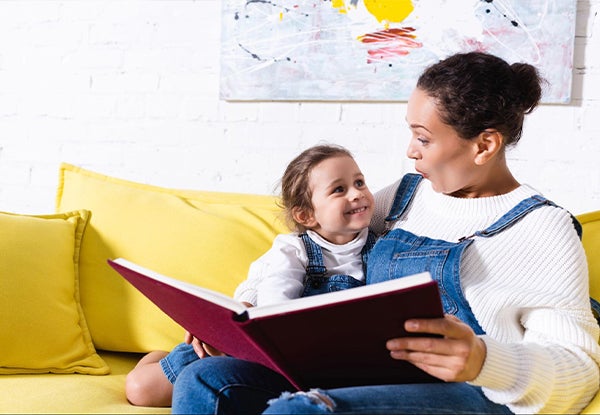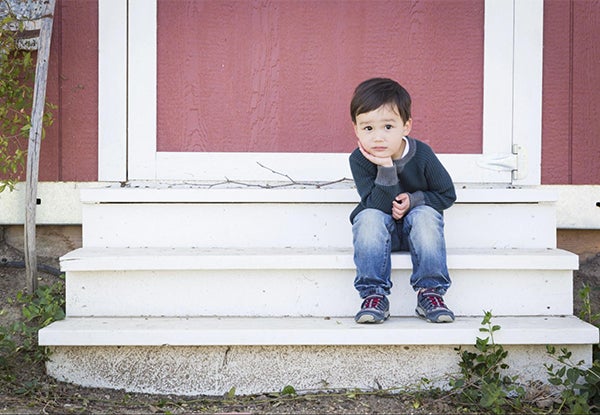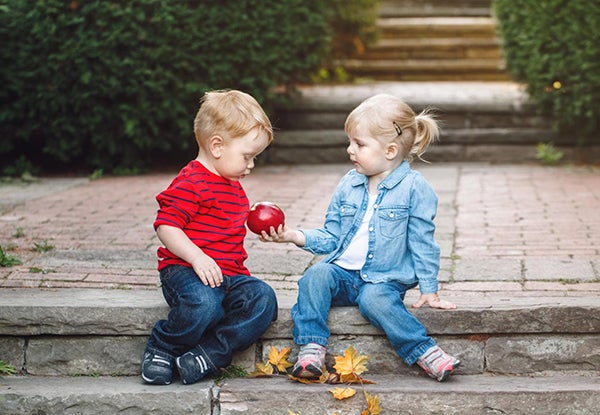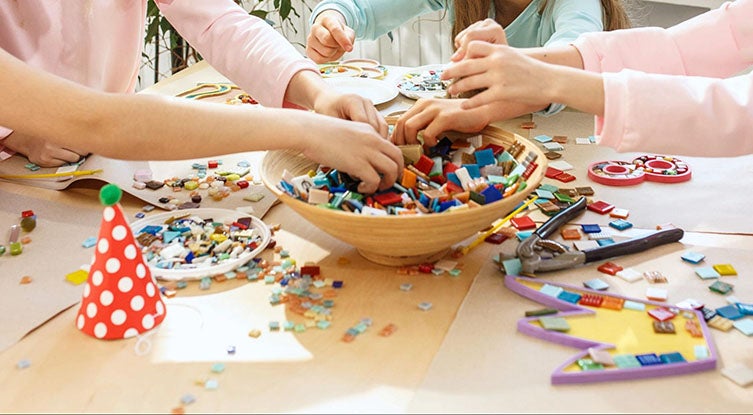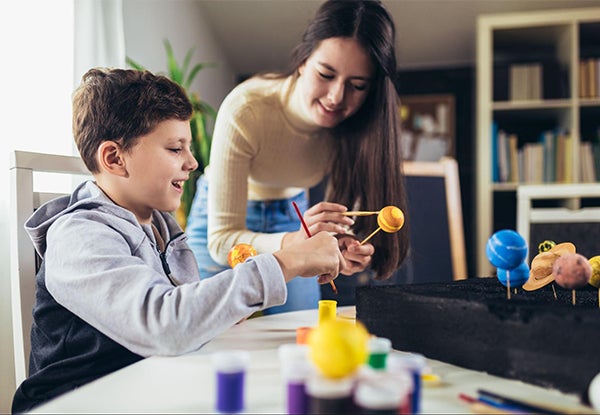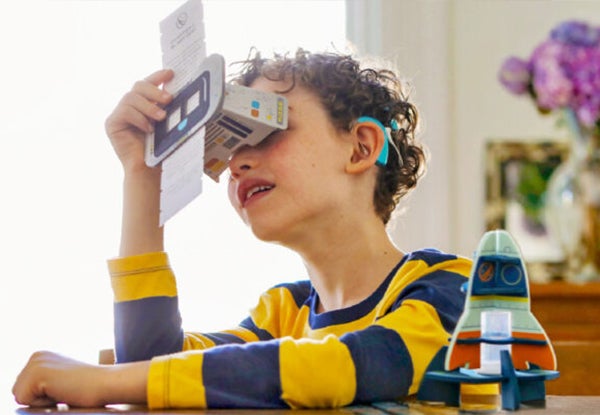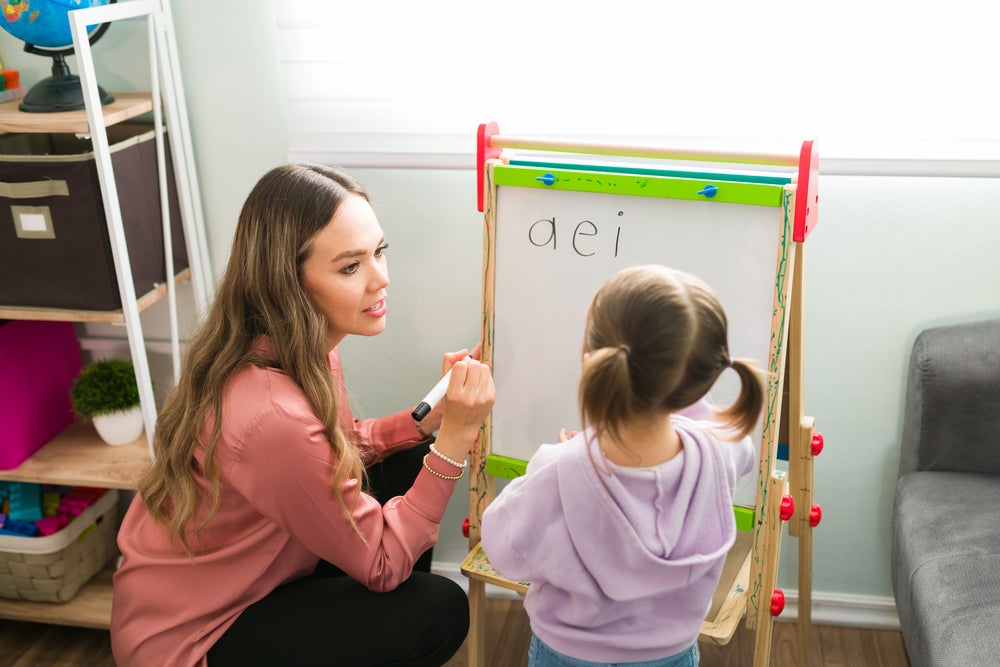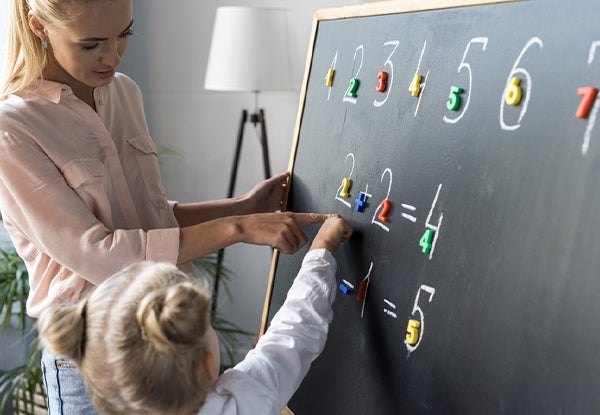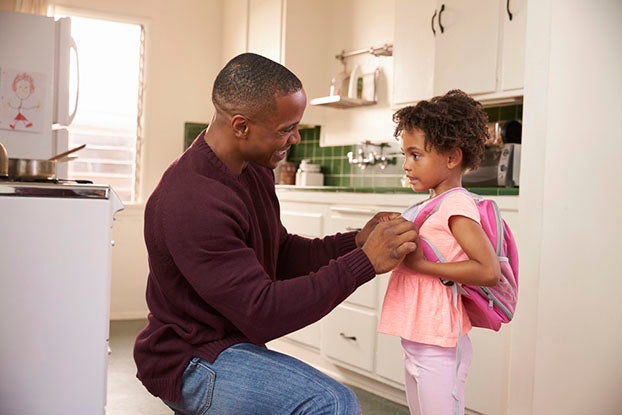What is social-emotional learning, or “SEL” for short? We’re glad you asked. It’s the foundation for a happy, successful life!
Empathy, self-reflection, impulse control, and conflict resolution — those are just a few of the skills kids develop through SEL. Working on SEL helps kids build Character, one of the 5 C’s at the heart of the Begin Approach to helping kids thrive in school and life.
SEL may have a fancy name, but in practice, it involves many things parents do already, like talking about feelings and considering others’ perspectives.
Sound important? We agree! And we’re here to help you understand what social-emotional learning actually is, why it matters, and how you can help your kids with it.
Table of Contents
- The Short Cut: Key Takeaways
- What Is Social-Emotional Learning?
- How Social-Emotional Learning Helps Kids
- How to Approach Social-Emotional Learning
- 12 Activities to Promote Social-Emotional Learning
The Short Cut: Key Takeaways
- Social-emotional learning helps kids develop self-awareness, social awareness, impulse control, healthy relationships, and good decision-making skills.
- A study of over 270,000 kids found that teaching social-emotional skills improves social behavior and academic performance, as well as decreases distress.
- Teaching SEL at home is simple! Parents can help by naming feelings in themselves and others, having conversations about kids’ feelings, and engaging in role-play.
As caregivers, we want to help our kids develop the social skills they need to thrive not only in their childhoods but also well beyond. Social-emotional learning is an important part of the answer.
What Is Social-Emotional Learning?
In a nutshell, social-emotional learning is simply learning to identify, understand, and control emotions. Of course, for children, that can be easier said than done.
Children aren’t born knowing how to manage their emotions, get along with other people, or cope with stress. If you’ve ever experienced a toddler’s tantrum in the middle of a grocery store, you know exactly what we’re talking about!
Social-emotional learning provides lessons and activities that help kids understand and manage emotions, develop empathy for others, set and accomplish goals, make responsible decisions, and maintain healthy relationships.
In short, it lays the foundation for kids to grow into positive, responsible, and self-aware adults.
The 5 Components of SEL
When talking about social-emotional learning, it’s important to look at the five interrelated areas that comprise SEL and are essential for kids’ development.
1. Self-Awareness
Self-awareness helps kids understand their own thoughts, beliefs, emotions, and stress levels. It’s one of the foundational skills of social-emotional learning — without it, it’s difficult to recognize those things in others and know how to respond!
SEL activities help children develop this essential life skill.
2. Social Awareness
Social awareness helps us put ourselves in another person’s shoes.
Sometimes that person may be from a completely different culture than ours. But empathy is needed in everyday interactions, too. It helps kids understand why their friend is crying, why that friend may be hurt or angry, or why they may be acting silly or happy.
3. Impulse Control
Impulse control helps us stop engaging in behaviors that may be harmful to us or the people around us.
Kids who struggle with impulse control may have outbursts and often fight with other kids. They may also have a tough time delaying gratification. Many people refer to this as “self-management,” and it can be supported with SEL.
4. Relationship Skills
To build and maintain healthy relationships, kids need to know how to resolve conflicts, communicate effectively, and determine when (and how) to ask for help. Social-emotional learning helps develop these skills.
5. Decision-Making
Making good decisions, including prioritizing, is something that kids (as well as adults!) struggle with. It includes weighing pros and cons, considering your well-being and others’, and making sound decisions based on all of this information.
The younger kids are when they begin to understand this important skill, the more time they have to develop it before the challenges of adulthood begin.
How Social-Emotional Learning Helps Kids
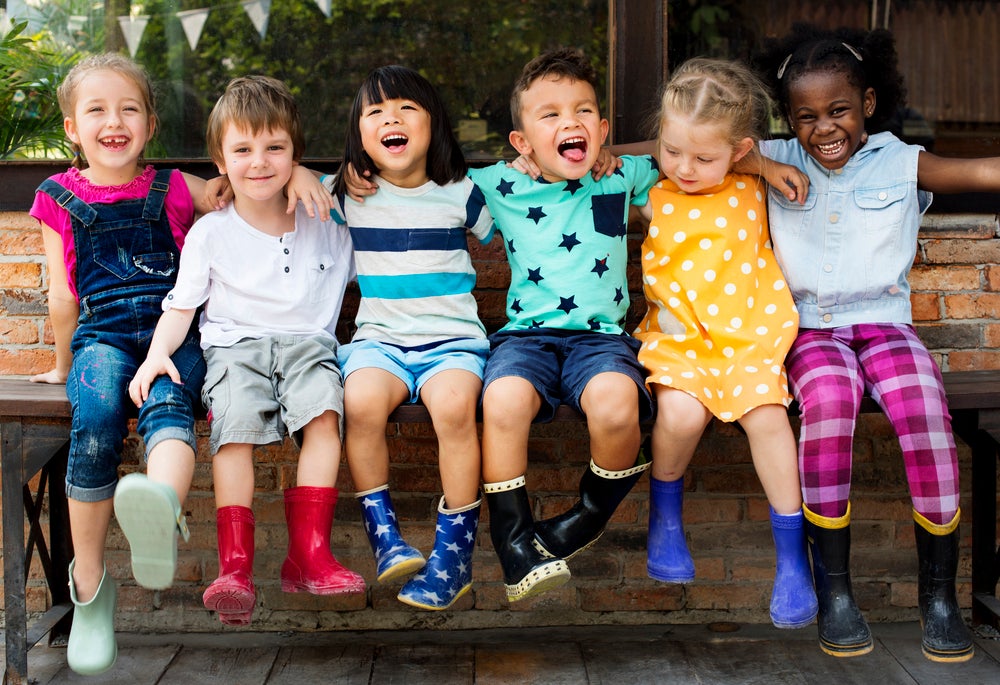
Now that you know what social-emotional learning is, it’s time to talk about its wide-reaching benefits. Here are a few to consider.
1) More Positive Attitude
Social-emotional learning helps kids develop a more positive attitude toward themselves and the people around them.
2) Navigating Adult Life
While the focus at the moment might be on helping your child have better experiences, SEL skills don’t stop being useful at the end of childhood.
Kids carry these skills into their adult lives to help them effectively solve challenges in their relationships or at work. These are all crucial elements of living a healthy and balanced life.
3) Academic Confidence
It’s well established that social-emotional learning positively impacts kids’ success in school. That may be because SEL helps them learn how to solve problems, cope with emotional stress, and overcome peer pressure.
How to Approach Social-Emotional Learning
Do you want to help your child develop their SEL skills? Of course you do! Here are some things you can do to help support their learning.
1) Be a Role Model
Kids learn best from our actions, not our words. Your kids will learn a lot about emotions and how to manage them by watching how you manage your own.
It can be hard (believe us, we’ve lived it!), and you don’t have to be perfect but try to model handling your full range of emotions the way you’d like your kids to.
It can be especially helpful to name your feelings in front of them (“This conversation with the cable company is making me frustrated right now.”) and talk through how you manage those feelings (“I need a few minutes by myself to settle down.”)
Your child will pick up on your moods and how you deal with them.
2) Practice Role-Playing
Role-playing gives us the opportunity to understand another person’s rationale (something that’s difficult in the middle of an argument) and why they may have said or done what they did.
Working role-playing into playtime (“OK, let’s pretend you’re the parent and I’m the kid.”) can be a fun way to help kids learn this perspective-taking.
3) Talk About Feelings
Communicating thoughts and feelings verbally is one of the most important social skills. You can help your child learn to do that by working it into your family routine.
Did they recently visit their grandparents or have a playdate at their cousin’s house? Consider asking them:
- What did you do while there?
- What was the best part?
- Was there a worst part?
- What made you happy?
Keep the conversation lighthearted and don’t sweat it if you don’t get a great answer every time. At first, your child might not know how to express themselves or answer these questions thoroughly. That’s OK! With a bit of time and encouragement, they’ll get there.y’ll get there.
4) Set Goals
Setting goals and working toward them can help your child continue developing their SEL skills.
You can set goals at the beginning of any period: a soccer practice, a day at school, a week, a season, or even a whole year.
During the process, help your child think about what they’d like to achieve. Throughout whatever time frame you’ve chosen, help them chart their progress. You can even use these to work on specific social-emotional learning skills, like:
- Learning to take a deep breath to calm down when they’re upset
- Using words to express how they feel
- Thinking of new ways to show others they care about them
5) Practice Working in Pairs
Kids work in teams throughout their lives, and you can help them develop the social skills to do so starting pretty young.
For instance, when it’s cleaning time, you can work together to sort laundry or straighten up a room. You might also consider teaming up to make a special gift for someone.
If your child is reading, you can take turns reading, alternating paragraphs or pages when you read together. If you have multiple children, they can share the book while you monitor.
Playdates offer another great opportunity to practice teamwork. You can plan activities that require your kids and their friends to work together, such as cooking a meal, drawing together, playing dress-up, or making a fort under a table.
Begin’s Little Passport Craft Discovery Kits subscription provides a monthly opportunity to team up with a pal and create an art project. Every month your child and a friend can tackle a new DIY delight that will both challenge and educate!
6) Consider the Perspectives of Others
Considering the perspective of other people helps kids develop empathy.
One of the easiest ways to help them is to incorporate social-emotional learning during storytime. After reading a book, you might ask your child how they think a character felt or why that character took certain actions.
You can also use everyday situations to help your child learn how to understand the perspective of others. For example:
- Look at how unhappy Chrissy was when kids made fun of her name. I think her face looked like this (make an unhappy face). What could we do to help her feel better?
- (On another day) Look how happy Chrissy seems now! Can you show me your happy face?
12 Activities to Promote Social-Emotional Learning
There are many other ways to help boost your child’s social skills. Here are a few activities you can try at home.
1) Watch a Movie on Mute
Watching a movie without sound is a great way for your child to understand non-verbal communication.
Skills Targeted
Self-awareness, social-awareness
How To Do It
Put on a movie and mute the sound. Now ask your child what they think about the characters’ emotions using non-verbal clues. You might ask them:
- How do you think that character feels?
- Are they content or frustrated? Happy or sad?
Ask your child what they saw that made them come to that conclusion.
If you don’t have a block of time to spare, you could also try Homer by Begin’s Social and Emotional Learning online games. Our games will help your child build friendship skills, and learn about empathy and perspective.
For younger kids, we also offer Learn with Sesame Street, where they can practice necessary social skills with Big Bird, Elmo, and the rest of the Sesame Street gang.
2) Cook Together
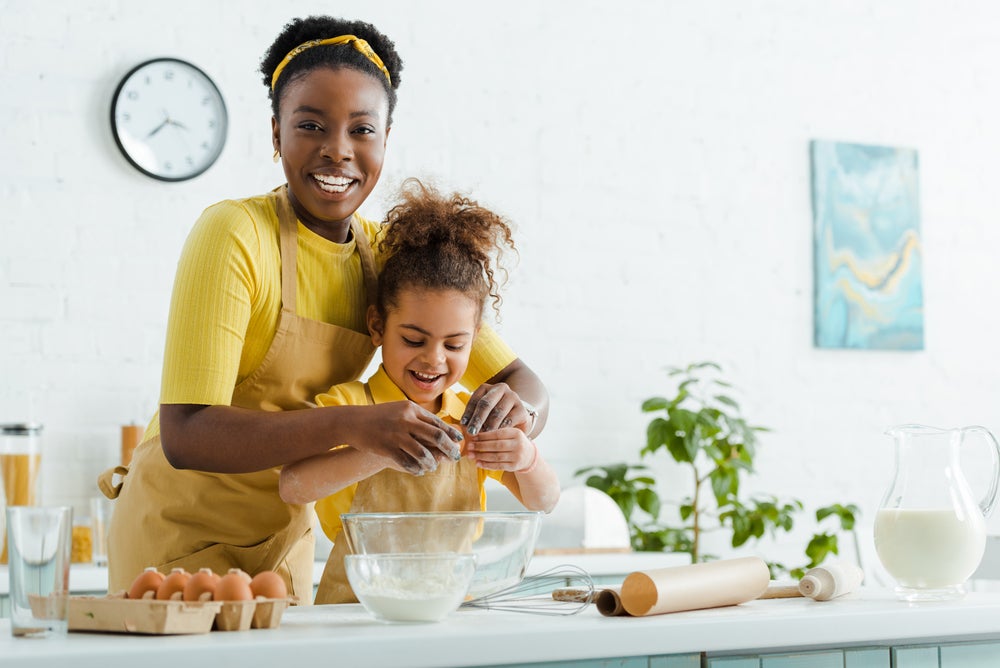
As we mentioned, cooking with a friend or family member can teach all sorts of SEL skills. Not only will your child learn to collaborate, but they’ll also learn to move through their emotions if the recipe is confusing or the resulting meal is not what they thought.
Skills Targeted
Self-awareness, social-awareness, relationship skills, decision-making
How To Do It
Find an easy recipe and ask your child to help gather the ingredients as well as any cooking tools that will be needed. Then divide up the tasks and get to work.
Cooking together will help your child with soft skills like patience and confidence, not to mention core skills like reading and math.
3) Write in a Journal
Journaling gives your child a place to express their ideas, thoughts, and opinions. This can be particularly useful as they grapple with difficult emotions.
In fact, the act of writing down stressful events has even been known to improve mental and physical health.
Skills Targeted
Self-awareness, self-management
How To Do It
Give your child a notebook and encourage them to write each day for a designated period of time. They can write about their day, or a certain event, make a list, or even draw a picture. It doesn’t matter what they write — it’s more about the discipline of writing itself.
Writing in a journal allows them to feel the freedom to express themself without judgment or reservation. You can even prompt them to take the perspective of another person in their writing as a way to better understand and appreciate others’ feelings and experiences.
4) Share Feelings
Being able to talk about feelings is important, so make it part of your daily conversations and activities.
Skills Targeted
Self-awareness, social-awareness, relationship building
How To Do It
Get a blank notebook and ask your child to draw characters that reflect different emotions. Prompt them to tell you a story about each of their characters and what happened to make them feel that way. Ask your child if they ever felt like the character and when.
Share a time in your life when you also felt that emotion. Now urge your child to think about the others around their character. How does the character’s emotion affect others? How might they be feeling?
5) Practice Mindfulness
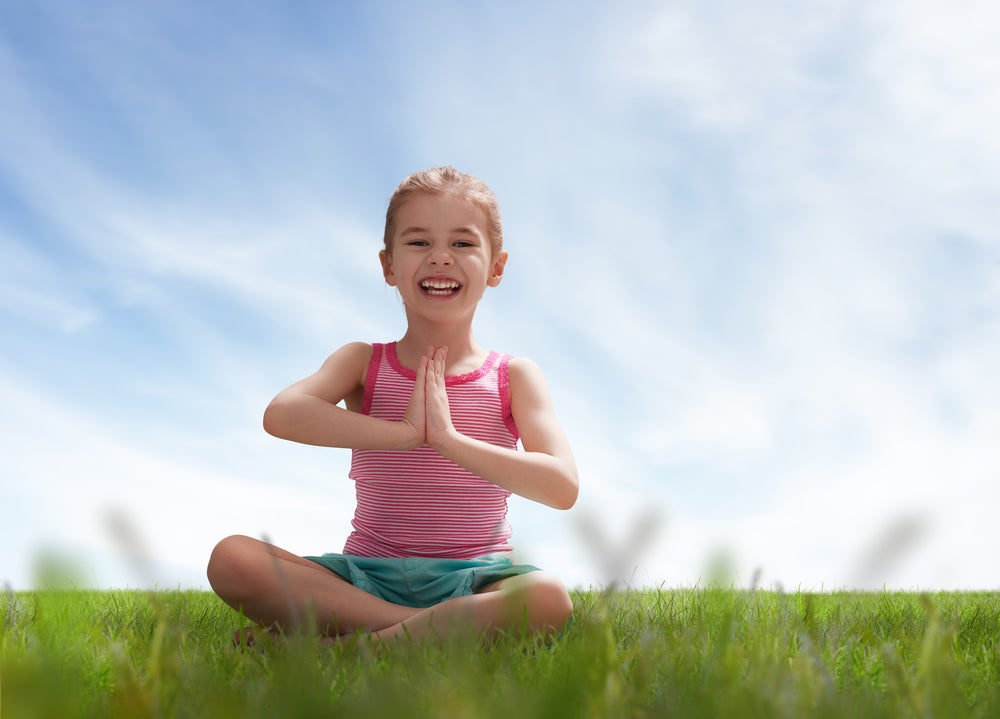
Teaching your child to stop, feel, and think instead of reacting will help them with decision-making and impulse control in the future. Mindfulness exercises can help.
Skills Targeted
Self-awareness, social-awareness
How To Do It
Go outside and urge your child to focus on all of the sounds they hear. Ask them what they heard and how it made them feel.
6) Write a Daily Reflection
Creating a practice of daily reflection is a great way to build your child’s understanding of themself and others.
Skills Targeted
Self-awareness, social-awareness, decision-making, relationship skills
How To Do It
Have your child reflect on the day by asking some questions, such as:
- How did you show kindness to yourself today?
- What skills did you use today?
- What feelings did you have today?
- What did you learn today?
- What do you look forward to tomorrow?
Try to do it consistently and at the same time each day. And then it’s up to you to show that you can really listen.
7) Practice Breathing Exercises
Practicing breathing exercises is a great way to reduce anxiety and stress and increase self-awareness.
Skills Targeted
Self-awareness
How To Do It
Ask your child to lie down on a bed or sofa and inhale into their chest, move their hands to their belly, and then inhale again before exhaling out. This is called belly breathing.
You could also try mindful breathing, where your child will focus on their breath, and take notice of the rise and fall of their abdomen as they breathe.
8) Play Emotional Charades
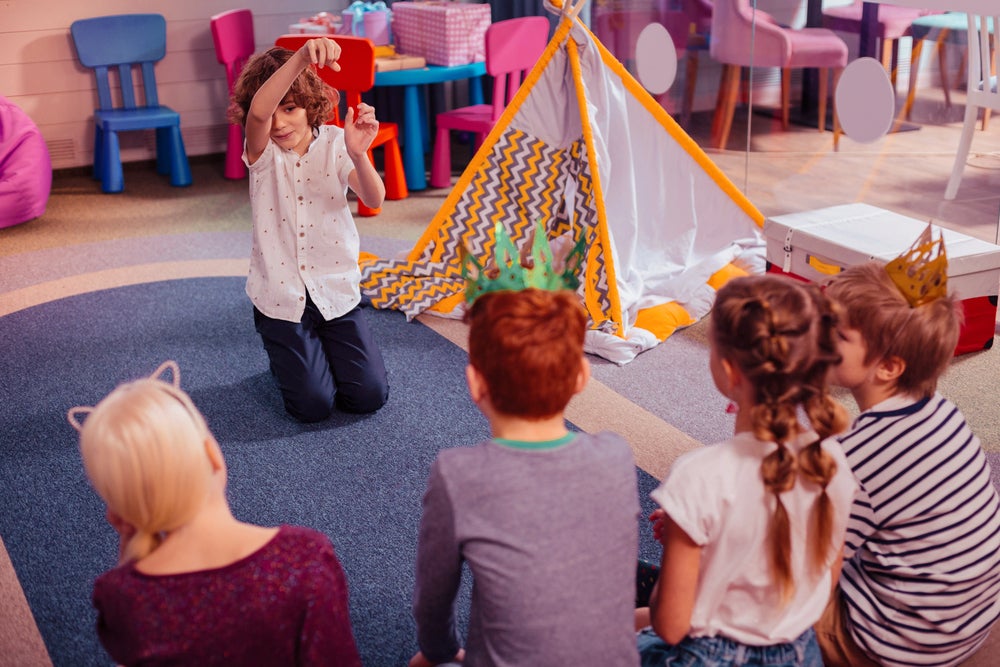
You are probably familiar with charades, the popular game where you act out a word and others have to guess. Emotional charades is the same, except the action words include emotions that your little one might feel.
Here are a few examples of prompts:
- Set the table angrily
- Sadly get dressed
- Happily brush your teeth
You get the idea!
Skills Targeted
Self-awareness, social-awareness
How To Do It
Come up with a list of prompts and take turns picking a prompt and acting it out. This will help your child practice their non-verbal communication skills, focusing on body language and facial expressions to convey their feelings.
9) Make a To-Do List
Making a to-do list is a great way for your child to start building expectations and set goals for the day.
Skills Targeted
Self-awareness, decision-making
How To Do It
Get a piece of paper and encourage your child to think through the day. What do they know is going to happen? What needs to get done?
At the end of the day, you can check off the things they’ve completed and celebrate their great work.
Tip: If your child isn’t quite writing yet, they can draw pictures or you can print pictures out to represent their tasks.
10) Create a Gratitude List
Encouraging your child to make a list of things they’re grateful for will help them focus on positive things in their life. There’s no right or wrong answer with a gratitude list — it’s really the act of consistently doing it that is important.
Skills Targeted
Self-awareness
How To Do It
Designate a special notebook for your child’s daily gratitude list. They can date the page and then write (or draw) whatever they’re grateful for — big or small. If they’re grateful for a hot plate of chocolate chip cookies, that works!
Because they’re doing it every day, it helps them create and work toward goals, as well as improves their communication skills. Writing down these happy thoughts will also reduce their anxiety.
11) Do a Kindness Challenge
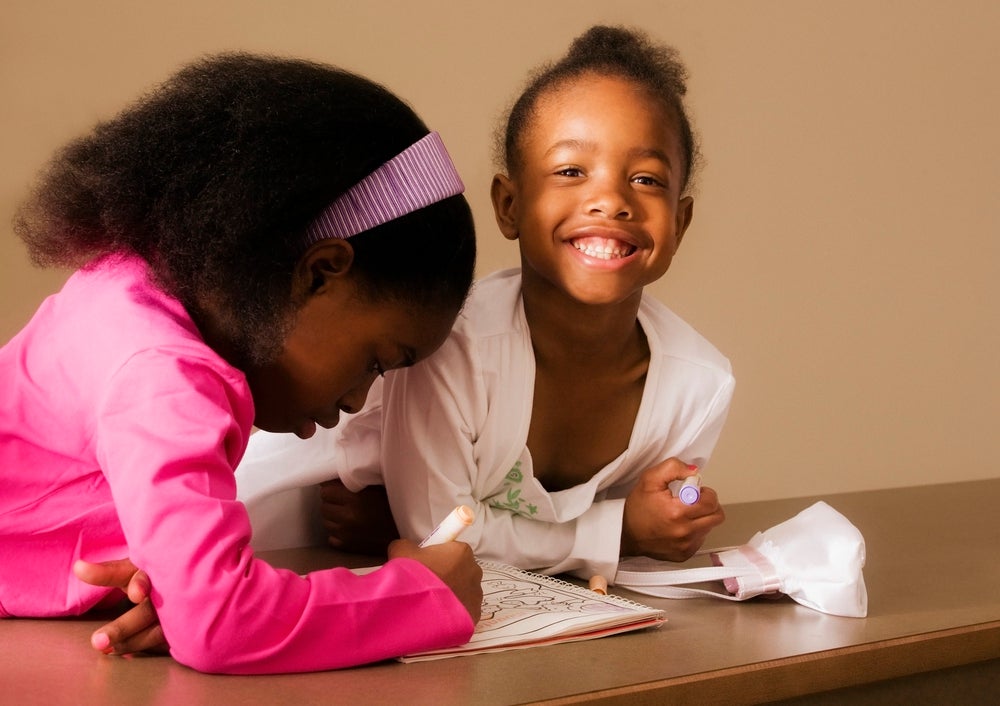
If there’s one thing that kids love, it’s a challenge. A kindness challenge channels any competitive nature toward positive, generous actions.
Skills Targeted
Self-awareness, social-awareness, decision-making, relationship skills
How To Do It
Make a list of acts of kindness that your child can do, and draw a circle next to each one. Here are some ideas: Offer a snack to a sibling or take the mail in for an elderly neighbor.
When your child completes an act of kindness, encourage them to color it in. This “gamifies” kindness and helps make it top of mind.
12) Try Emotional Matching
Because it can be a bit tricky to explain feelings, it’s helpful to use real-life examples. Think of a time you felt happy, sad, mad, or afraid.
Once your child understands the meanings of the emotions, ask them to practice guessing what emotion a character or family member might feel based on the scenario.
Skills Targeted
Self-awareness, social-awareness, relationship building
How To Do It
Draw four circles on a piece of paper and write happy, sad, mad, and afraid underneath. Ask your child to draw a face to represent each emotion. Then when you tell a story, ask them to match what emotion the subject of the story might be feeling.
Social-Emotional Learning with Begin
Now you understand social-emotional learning and have some great activities to try!
At Begin, we think social-emotional learning is essential for helping kids develop into well-rounded adults who succeed in school and life.
To support their learning, we build social-emotional learning activities into many of our products, whether it’s a Little Passports book, a Learn with Sesame Street by Begin game, or reading stories in HOMER.
Visit our parent resources to discover more ways to help your kids with social-emotional learning!
